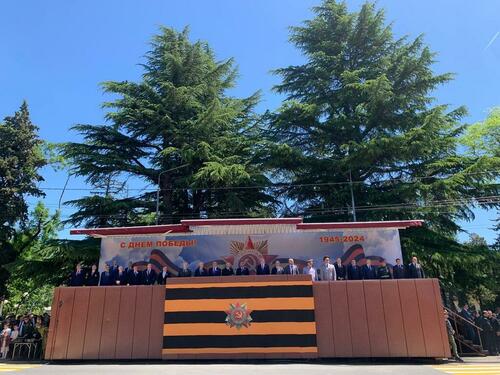In relation to the NATO Parliamentary Assembly resolution "On the situation in Georgia"
The adopted 16 November 2010 NATO Parliamentary Assembly resolution, in which the territory of South Ossetia is called an "occupied Georgian territory," is another attempt to give a false understangin of the realities in the region, having biasly distorted them. The Republic of South Ossetia is a sovereign, recognized state and its territory cannot be regarded as "occupied Georgian territory", and its existence as a violation of someone else's "territorial integrity ".
Georgia has never had a legitimate right to the territory of South Ossetia, which has been incorporated into the Georgian Soviet Socialist Republic in 1922 against the will of the Ossetian people. In the 20th century, Georgia had twice committed genocide and ethnic cleansing against the Ossetian people of South Ossetia in 1920 and 1989-1992. Throughout the period when South Ossetia was a part of Georgian SSR, Tbilisi authorities pursued a policy of discrimination, cultural genocide, forced assimilation, suppression of rights and freedoms of the Ossetians. Denunciation of all public acts passed since 1921, in 1990 Georgia completely destroyed the state and legal grounds for South Ossetia's being a part of it. In their turn, the people of South Ossetia have repeatedly reaffirmed their will for independence in referenda in 1992, 2001, 2006.
Georgian leaders' confidence in their impunity and in the right to decide on the fate of people, life and death of whole nation made new crimes against peace and humanity in the 2oth century possible. A new full-scale military aggression coupled with violence by Georgian forces against the peaceful population of South Ossetia was unleashed by Georgia against South Ossetia in 2008. Only resolute and timely action of Russia through the implementation of operation on forcing the aggressor to peace had prevented even more terrible consequences of the inhumane Georgian venture.
The recognition of the state independence of South Ossetia by the Russian Federation following the barbaric aggression of Georgia had been refuted, guaranteed the security of South Ossetia and the right for its free development. After August 2008, Russia and South Ossetia are building relations on the basus of international law. With the withdrawal of the Russian peacekeepers from the security zone around South Ossetia October 8, 2008, Russia has fully met its obligations under the Medvedev - Sarkozy agreements, and from that time, there are no Russian soldiers on the territory of negiboring Georgia. The presence of Russian troops on the territory of the sovereign republic of South Ossetia is based on the bilateral Russian-South Ossetian arrangements that cannot be considered as "occupation" or "violation of territorial integrity" of Georgia.
Again, we should point to the the absolutely unjustified use of the expression "occupied Georgian territories." In international law, an occupation is a temporary presence of troops of one state on the territory of another in a state of war between them, under the authority of the military command of the occupying state. In South Ossetia, its own democratically formed power branches, the legislative, executive, judicial, are fully functioning, political parties and public organizations are active. The Ministry of Foreign Affairs of the Republic of South Ossetia expressed regret that NATO parliamentarians did not take into account the findings in the reports by the independent EU Fact-Finding Mission headed by Heidi Tagliavini, and the Council of Europe Commissioner for Human Rights Tomas Hammarberg, and the adopted resolution contains deliberately provocative position. Undoubtedly, the Georgian authorities will perceive it as a support to their revanchist intentions.
It is obvious that the adoption of this resolution by NATO PA will not help improve dialogue on security in the region within the Geneva process and jeopardizes the possibility to settle the existing problems by diplomatic means.
Tskhinval, 17 November 2010.





